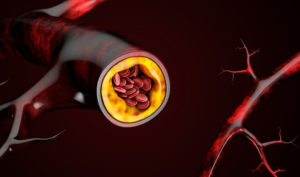 I’m sure you’ve heard a lot about cholesterol and the importance of keeping it in check. High cholesterol can lead to atherosclerosis, making it harder for your heart to pump blood. This may lead to increases in blood pressure and a higher risk of a heart attack.
I’m sure you’ve heard a lot about cholesterol and the importance of keeping it in check. High cholesterol can lead to atherosclerosis, making it harder for your heart to pump blood. This may lead to increases in blood pressure and a higher risk of a heart attack.
When blood can’t move easily through blood vessels and arteries, organs, including your brain, can’t always get what they need to function optimally. That’s why high blood pressure is typically a risk factor for Alzheimer’s and dementia.
Advertisement
But cholesterol can be easily misunderstood because it’s not all bad. There are two main types of cholesterol you have heard of. First, there is the “bad stuff.” It’s called low-density lipoprotein, or LDL, and it’s what can accumulate as “plaque” along arterial walls.
Then there is the “good” stuff. It’s called high-density lipoprotein, and it can act as a bit of a clean-up crew. When it’s circulating through your blood in adequate supply, it can remove LDL deposits and promote better circulation.
HDL is known as a “negative” risk factor for heart disease, meaning it lowers heart disease risk because it’s associated with health benefits like lower blood pressure and improved cholesterol profile.
As you can see, not all cholesterol is created equal. LDL can be broken down even further. Some forms are dangerous while others are neutral, which means they provide no benefit or harm.
So, is dietary cholesterol bad for you? Not necessarily. For example, foods that are HDL-friendly are the Mediterranean diet. Things like olive oil, beans and legumes, fatty fish, and high fiber fruit, vegetables, and grains all boost health.
It’s not even all bad on the LDL side. Even meat, poultry, eggs, and other animal foods that are higher in cholesterol may not pose as much risk as you think. There is research suggesting the cholesterol in these items is a neutral form of LDL, and they likely play a limited role in atherosclerosis.
This is only true if meat sources are unprocessed. Moderate consumption is recommended.
Advertisement
But the bad LDL may come from foods that feature added sugars. This may seem very strange because sugar doesn’t contain any cholesterol. But research has shown that people with high-sugar diets tend to lave high levels of harmful LDL and low HDL.
High-sugar diets prompt the body to produce more LDL that has the potential to accumulate on arterial walls. Further, they reduce HDL and boost total triglycerides.
To get a handle on cholesterol, the key seems to be cutting down on things like sugar and processed foods, while adopting dietary and lifestyle measures to boost HDL. Things proven to work include:
- Daily consumption of extra virgin olive oil
- Regular exercise
- Weight loss
- Eating blueberries and other “purple produce”
- Fatty fish consumption
- A low-carb diet
